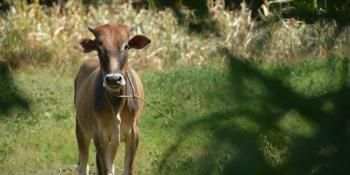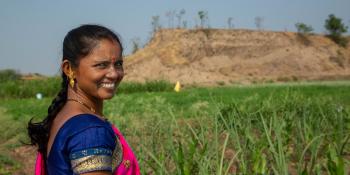CCAFS scenarios: a tool to co-develop policy and research

The future scenarios method shows that research can help national rural sector actors use tools for better implementation of plans, programs and development activities.
One the key questions we ask ourselves at CGIAR is how our agricultural research activities can best support national policy objectives. To help answer this, government and private sector representatives, CGIAR researchers, and other stakeholders met in Ouagadougou, Burkina Faso in mid-July 2015. Here, they reviewed the National Plan for the Rural Sector (PNSR) for Burkina Faso using different future scenarios.
They took a novel approach: in addition to a scenario-guided review of the plan, they tried to define how CGIAR research programs can best support the achievement of the plan’s objectives under different future scenarios. This set of scenarios represents different plausible future contexts with emphasis on socio-economic developments and climate change, and is particularly useful for testing the robustness of plans or policies in the face of future uncertainty.
Read more: Using future scenarious to design policy and research together in Burkina Faso
In a video of the workshop, CCAFS regional program leader for West Africa, Dr. Robert Zougmoré, explains how scenarios can be used to review the current PNSR and thereby formulate a more robust, updated version. In addition, he mentions how scenarios can help to define in which way the Consortium Research Programs (CRPs) that are active in Burkina Faso can support the PNSR objectives best.
Subsequently, Mrs. Simone Zoundi, president of the National Federation of Agriculture and Food Industries of Burkina Faso (FIAB), acknowledges that the scenario-guided approach is of great added value to the process of improving the PNSR, and she describes how this process will eventually help to strengthen the economy of Burkina Faso.
And finally, Mr. Joachim Ouedraogo, Head of Department Rural Sector Policies at the Permanent Secretariat for Coordination of Agricultural Sector Policies (SP-CPSA), emphasizes the objective approach of the method, which allows for different stakeholders’ perspectives to be taken into account equally.
Lucas Rutting is a Scenarios and Policy Researcher at CCAFS. He is based at the Environmental Change Institute at the University of Oxford.
The video was edited by Elisabeth van de Grift and translated by Charlotte Ballard.



